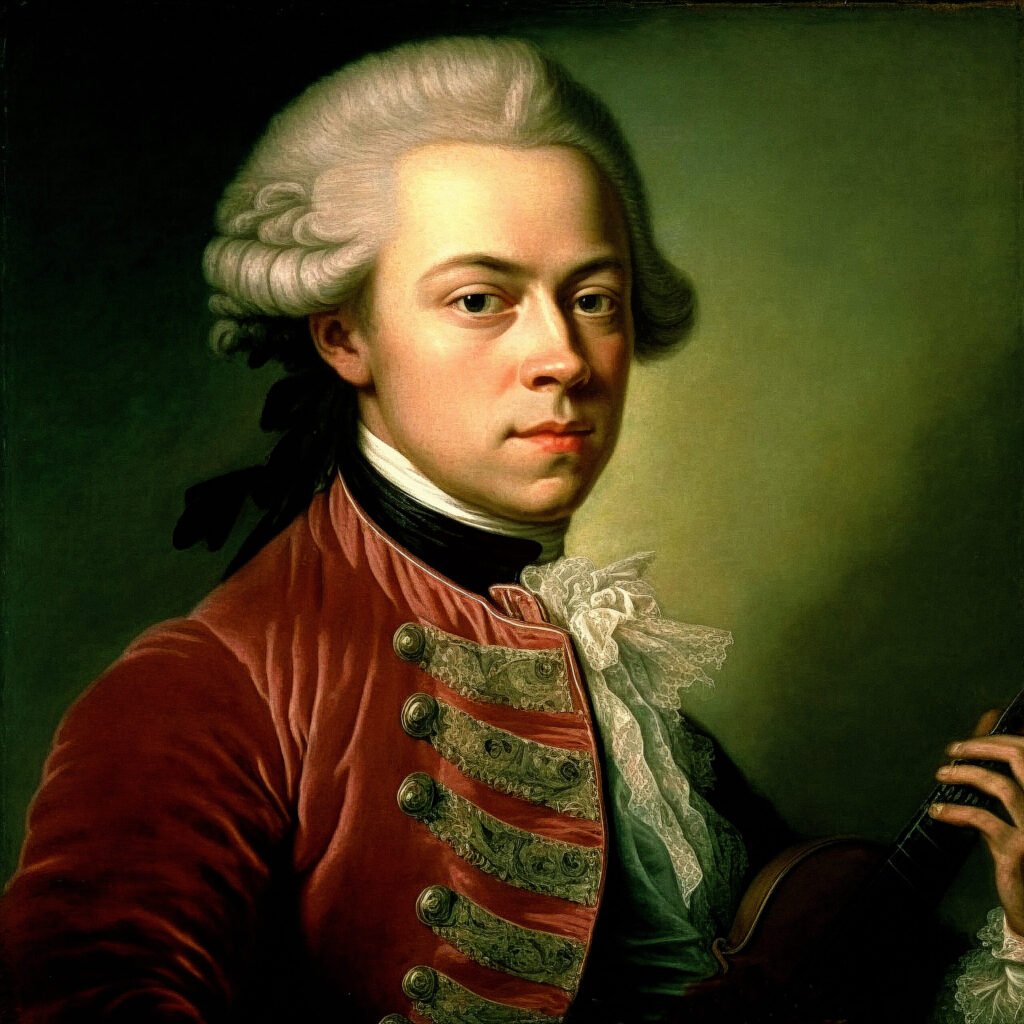Wolfgang Amadeus Mozart, born in Salzburg, Austria, in 1756, is often considered one of the greatest composers in the history of Western music. His works span a wide range of genres, including symphonies, operas, chamber music, and choral pieces. Today, Mozart’s music remains a cornerstone of classical music and continues to be celebrated worldwide. While Mozart may not have accumulated wealth during his lifetime, the value of his music and his legacy have grown immeasurably since his death. In this article, we’ll explore Mozart’s financial struggles, his net worth in the modern era, and the role YouTube plays in continuing his cultural and commercial success.
Mozart’s Financial Struggles During His Lifetime
Despite his extraordinary musical talent, Mozart’s financial situation during his life was far from secure. He was an independent artist who refused to be bound by the constraints of aristocratic patrons, which made it difficult for him to build long-term financial stability. While he composed numerous works that were in demand—such as symphonies, operas, and chamber music—he was often in debt and lived beyond his means.
Mozart’s lavish lifestyle, combined with his lack of interest in managing finances, often led him into financial trouble. He was forced to borrow money from friends and acquaintances to cover living expenses. Although his compositions were frequently performed, Mozart’s income was inconsistent, and he never secured a steady position with a court or patron. The death of his father in 1787 further deepened his emotional and financial burdens, and by the time of his death in 1791 at the age of 35, Mozart was still in debt.
Estimating Mozart’s Net Worth Today
Determining Mozart’s net worth in modern terms is difficult, as he lived in a different time with a different economic structure. His estate and works, however, have provided substantial financial returns since his death. Mozart’s compositions continue to be some of the most performed and recorded in the classical music canon. His music is performed in concert halls worldwide, and modern audiences continue to purchase recordings of his works.
Today, Mozart’s music generates significant income through performances, recordings, adaptations, and licensing. Although Mozart’s works are in the public domain—meaning there are no ongoing copyright royalties for his original compositions—performances, concerts, and the commercial use of his music in films, TV shows, and advertisements ensure that his legacy continues to generate substantial revenue.
The Enduring Influence of Mozart’s Music
Mozart’s impact on the world of classical music is immeasurable. His work not only influenced his contemporaries but also set the stage for future generations of composers. His ability to blend emotional depth with technical complexity, and his pioneering use of orchestration, have made him a model for composers to this day. Mozart’s music is performed frequently in concert halls, and his influence is evident in the works of later composers like Beethoven, Schubert, and Brahms.
Beyond the concert hall, Mozart’s music has penetrated popular culture in countless ways. Films like Amadeus (1984), which depicted Mozart’s tumultuous life, brought his story and music to new audiences around the world. Even in the modern era, Mozart’s music is often featured in movies, television shows, and commercials, further expanding his reach and ensuring his ongoing relevance.
The Commercialization of Mozart’s Music
While Mozart himself was not a wealthy man during his lifetime, the commercial value of his music today is substantial. Recordings of his works are regularly released on CDs, vinyl, and digital platforms. Even though his music is in the public domain, performers, orchestras, and record labels still profit from recordings, performances, and licensing. Concert performances of Mozart’s symphonies, operas, and chamber works continue to be big business for classical music institutions.
Furthermore, Mozart’s music is frequently used in film and television to evoke a sense of sophistication, elegance, or emotional depth. Whether used in background scores or iconic scenes, his compositions remain a staple of cinematic soundtracks. This broad use across media has contributed to the continuing financial success of his works.
Conclusion: Mozart’s Everlasting Legacy
Mozart may not have been wealthy during his lifetime, but his legacy is now worth millions—perhaps even billions—due to the enduring popularity and commercial success of his music. His works have not only shaped the course of classical music but have also been woven into the cultural fabric of society. Thanks to digital platforms like YouTube, Mozart’s music continues to be accessible to a global audience, ensuring that his influence will endure for generations to come.
Today, Mozart’s net worth is measured not just in terms of financial earnings, but in the cultural and artistic wealth he has left behind. His music remains a powerful force in the classical world and beyond, constantly influencing new generations of musicians, artists, and listeners. In the modern age of streaming and online content, Mozart’s works have become more accessible than ever, ensuring his legacy will continue to flourish.
For those interested in exploring more of Mozart’s masterpieces, YouTube offers a vast array of performances and recordings. Here are some to get you started:
Through these videos, you can experience the depth and beauty of Mozart’s compositions, which continue to captivate and inspire listeners around the world.



